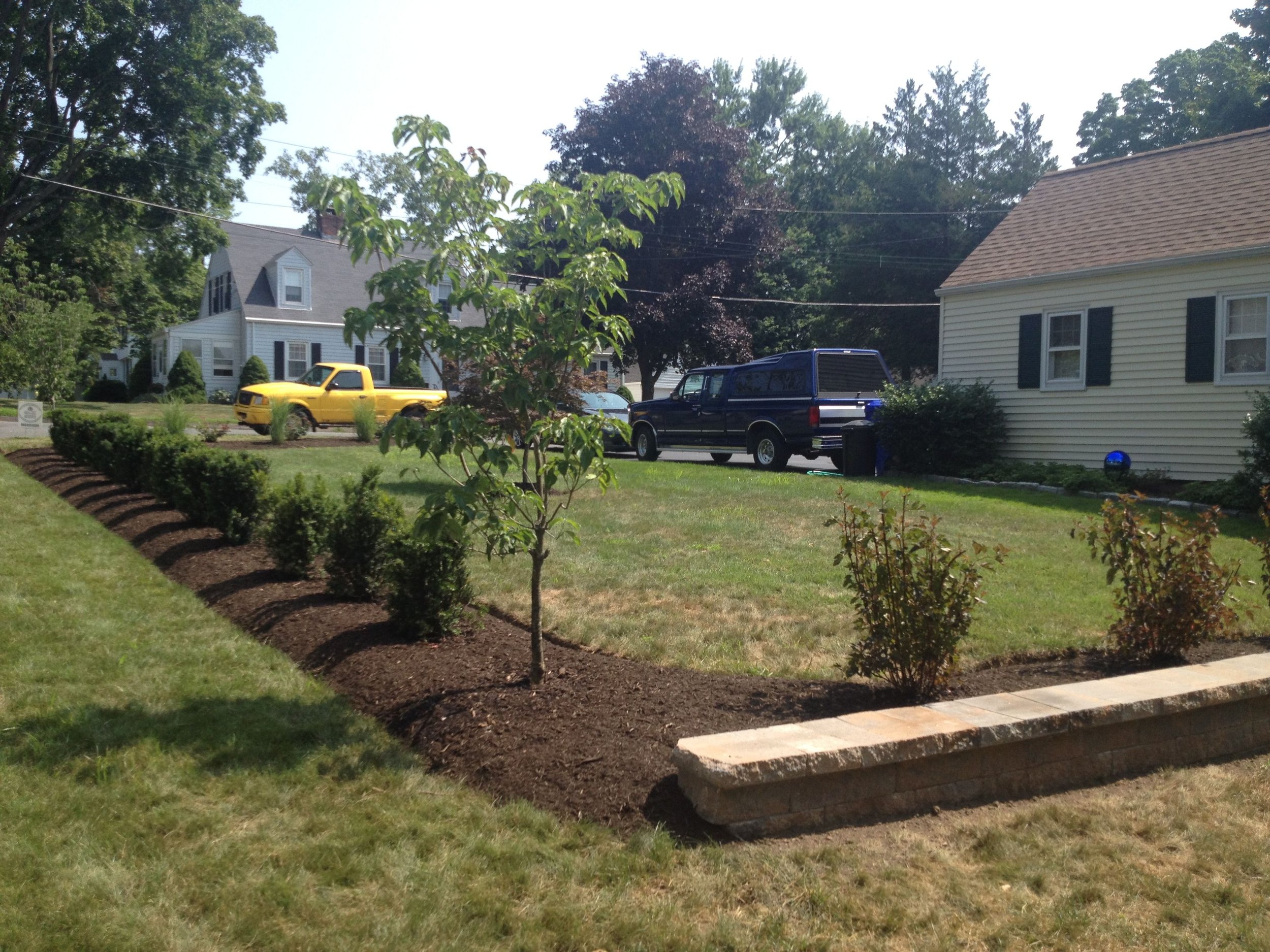Enjoying your outdoor space in the Wethersfield and Southington, CT areas may have you desiring a little more privacy. While fences can be great solutions for privacy and security, if you’re looking for something more natural, there are a variety of plantings that can provide you with a bit of privacy and let you enjoy your space in peace.
Related: 3 Tips for Choosing the Right Mulching for Your Plantings in the West Hartford, CT, Area
Arborvitae
Arborvitae is one of the most common selections for greenery that provides privacy. Between the five different species of arborvitae, they can grow to be 10 to feet tall or taller. Arborvitae prefer full sun but can do okay in partial shade, too. The wood of these plants naturally resists decay, making them sturdy hedges with long lifespans. Beware, though, as deer are attracted to arborvitae and may damage the young hedges, preventing them from thriving.
Boxwood
If you have ever admired a shrub that has been pruned into a unique shape, you’ve likely been admiring a boxwood! Boxwoods have dense foliage and compact leaves, making them good for pruning and shaping. The nature of these plans also allows you to determine how tall you want the shrub to grow. While they can grow to a height of 15 to 20 feet, pruning can keep them smaller if you prefer smaller privacy screens. Boxwoods prefer well-drained soil and partial shade, making them nice for areas that are closer to your home that are more shaded throughout the day.
Japanese Yew
Another option for a privacy shrub, the Japanese yew can reach up to 20 feet in height, but is slower-growing. The shrub prefers well-drained soil and partial shade but can tolerate full sun. Although the Japanese yew is deer resistant, it is also toxic. All parts of the shrub except for the red berries are toxic to humans and animals. If you have nosy pets or curious kiddos, you may want to consider another plant that is non-toxic.
Leyland Cypress
On the opposite end of the growing spectrum, the Leyland cypress is a fast-growing tree that can grow up to 60 feet in height. These towering trees are resilient and can grow in a variety of soil types. Being drought resistant, the cypress is likely to survive any weather curveballs in our area. Because of the size that this tree can grow to, it does require regular pruning to maintain shape and not overcrowd surrounding trees. These trees are commonly used as windbreaks, giving you an idea of their strength and durability.
Creeping Vines
If you already have a fence in place and are looking to give it a more natural look, consider training creeping vines around it. You can let the vines grow naturally or shape them so they grow in specific areas. Many creeping vines include colorful blooms during the year also, giving you a fun new visual to your natural privacy screen. Popular choices for creeping vines include ivy, wisteria, and clematis.
American Holly
Another slow-growing privacy option is American holly. This native evergreen tree sports dark green leaves with bright red berries that are commonly associated with winter. This shrub can grow up to 50 feet tall if left unpruned. Because it is tolerant of many types of soil, it tends to be a more durable plant that can survive through various weather patterns. It is believed that holly leaves develop their spiky appearance as the result of unwelcome grazing, making it more of a deterrent for any grazing wildlife.
Related: 4 Areas Where Landscaping Lighting Is Necessary in the Simsbury and Wethersfield, CT, Areas
About the Author
Birch Hill Landscape & Design is a full-service, woman-owned, family-run design/build contractor that has been serving residential and commercial customers in the Central Connecticut area for over 30 years. When you see our work vehicles, you know that another satisfied customer is benefiting from our experience, passion, and commitment to quality!


